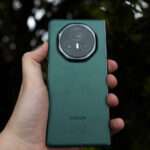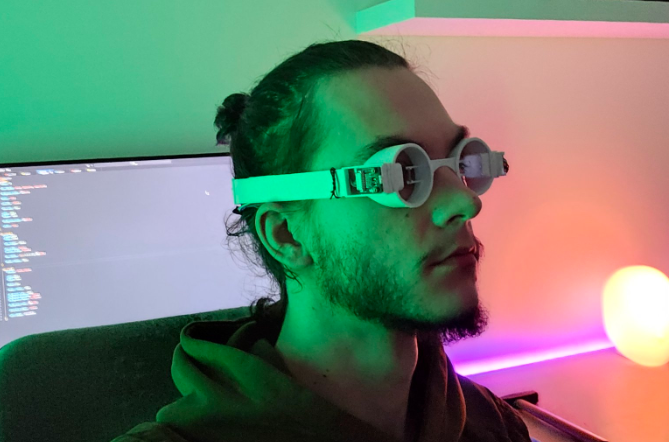Czech inventor Miroslav Kotalík has turned heads in the tech community with his innovative creation: a pair of homemade AR glasses called Zero. This groundbreaking device challenges the notion that cutting-edge AR technology must come from major tech corporations or require substantial investment.
Zero represents a significant departure from conventional AR glasses, incorporating a Raspberry Pi Zero as its brain and boasting the ability to run web applications natively without requiring an internet connection. What sets Zero apart is its remarkable self-contained design – there’s no need for external batteries or additional hardware attachments, making it one of the most integrated AR solutions available.
The genius of Zero lies in its simplicity and accessibility. Kotalík has designed the system to be incredibly developer-friendly, allowing programmers to create AR applications with unprecedented ease. The process is as straightforward as creating a basic webpage and placing it in the appropriate folder. The operating system handles all the complex elements automatically, including sensor integration, head tracking, and the ‘glance’ selection system that allows users to interact with virtual elements.
One of the most impressive technical achievements of Zero is its optical system. Kotalík explains that the glasses utilize a sophisticated collimation system for the projected light, ensuring that displayed content remains consistently in focus regardless of viewing distance. “The optics collimate the projected light. It’s always in focus, even when looking into distance. You definitely do not have to try focus short distance,” he notes, highlighting a solution to a common challenge in AR display technology.
I’ve designed and built a cheap, self-contained pair of AR goggles running web apps. I call the prototype Zero. I’ve made everything myself at home including the lenses and the software
It’s not too powerful, the image is not perfect, but it’s a open platform I can experiment on pic.twitter.com/2I93oEIGm6
— Miroslav Kotalík (@mi_kotalik) October 15, 2024
The project emerges at a time when the AR market is dominated by expensive options from major tech companies. While devices like the Meta Quest 3S offer mixed reality experiences at $299, Kotalík’s creation demonstrates that innovative AR solutions can be developed independently and potentially at a lower cost point. His work challenges the industry’s status quo and opens new possibilities for accessible AR technology.
The offline functionality of Zero is particularly noteworthy in today’s connected world. While most AR devices rely heavily on cloud computing and constant internet connectivity, Zero’s ability to function independently makes it uniquely versatile. This feature not only ensures privacy and reliability but also makes the device suitable for environments where internet connectivity might be limited or unavailable.
The development of Zero represents a significant milestone in the democratization of AR technology. By creating a system that can run web apps natively and requiring minimal infrastructure, Kotalík has essentially lowered the barrier to entry for both developers and users. The ability to create AR applications using standard web development tools could potentially lead to an explosion of creative applications and use cases.
Looking ahead, Zero’s innovative approach could influence the direction of AR development across the industry. The project demonstrates that complex AR solutions don’t necessarily require massive research and development budgets or corporate backing. Instead, ingenuity and a clear understanding of user needs can lead to practical, efficient solutions.
This DIY success story also highlights the continuing importance of individual inventors and makers in pushing technological boundaries. While major tech companies invest billions in AR research, Kotalík’s achievement shows that breakthrough innovations can still come from passionate individuals working independently.
The implications of Zero extend beyond just technology. It represents a philosophical shift in how we might approach AR development, emphasizing simplicity, accessibility, and user empowerment over complex, proprietary systems. As the AR industry continues to evolve, Zero stands as a testament to the power of individual innovation and the potential for open, accessible technology to shape the future of how we interact with digital information.
With Zero, Kotalík hasn’t just created another pair of AR glasses – he’s demonstrated a new paradigm for AR development that could inspire the next generation of inventors and developers to think differently about how we build and interact with augmented reality technology.
I’ve designed and built a cheap, self-contained pair of AR goggles running web apps. I call the prototype Zero. I’ve made everything myself at home including the lenses and the software
It’s not too powerful, the image is not perfect, but it’s a open platform I can experiment on pic.twitter.com/2I93oEIGm6
— Miroslav Kotalík (@mi_kotalik) October 15, 2024
















Add Comment